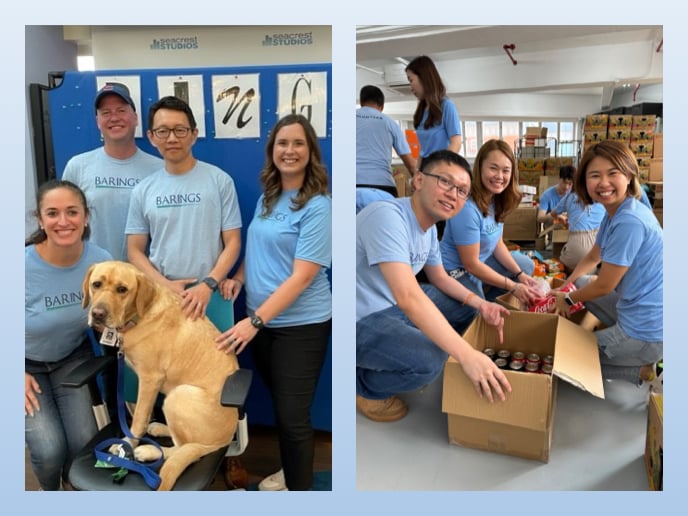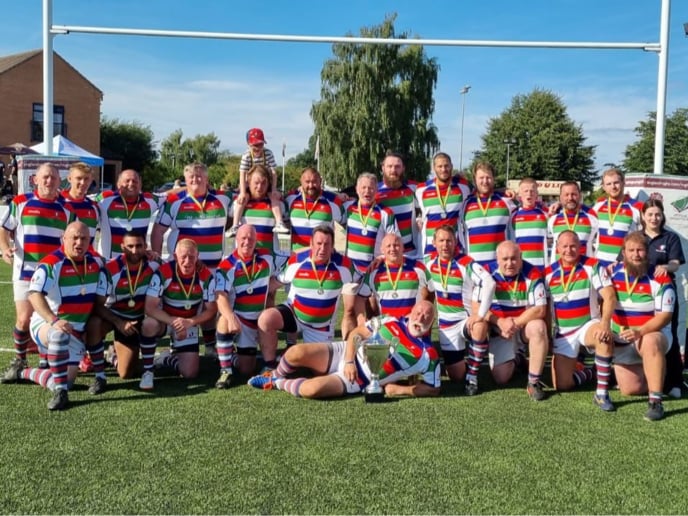Children’s Literacy Charity
In this article, Barings’ Elizabeth Cooper speaks with Susy Gould-Obiora of The Children’s Literacy Charity about the impact of COVID on children’s literacy in England, and the partnership with Barings to boost literacy skills.
Elizabeth Cooper: Tell me about the current state of children’s literacy in the U.K.
Susy Gould-Obiora: Literacy, numeracy and oracy are vital in underpinning a child’s development and life outcomes. Lacking essential literacy skills can hold a person back at every life stage: from education, to work, to everyday activities. But a recent government report1 shows that over 275,000 11-year olds left primary school unable to read and write at the expected levels.
Unfortunately, the picture is even worse for children from disadvantaged backgrounds: last year, the majority (57%)2 of disadvantaged children left primary school without reaching the expected standard for literacy and numeracy.
Without these skills, children can fall behind at an early age and then struggle to make progress in the mainstream classroom. For some, they are never able to close their literacy gap and that struggle continues throughout their time in education, ultimately affecting their ability to make progress in life beyond school.
EC: Has the COVID pandemic had any impact on literacy levels?
SG-O: Even before the COVID pandemic, our poorest children were starting primary school up to two years behind their better-off peers in language and vocabulary.
In 2022, 41% of Year 6 pupils3 left primary school without meeting the expected standards in literacy and maths (50,000 more than in 2019), and the attainment gap between poorest and most advantaged is at its widest level for a decade.
Many children continue to struggle to make up for time lost during COVID and lockdowns. The recent government report said that it could take 10 years4 for the gap between disadvantaged children and others to narrow to what it was before COVID. Schools are operating under immense pressure and tell us more children than ever before need specialist support to catch up.
It could take 10 years for the gap between disadvantaged children and others to narrow to what it was before COVID.
EC: What are the long-term impacts on a child’s potential?
SG-O: If children are unable to catch up with their reading and vocabulary in their early years of education, the gap will widen as they progress through primary school. Leaving primary school below age-related expectations will have a significant impact on a child accessing the curriculum in secondary school and early intervention is key if we are to improve outcomes.
Without all the essential literacy skills, children can fall behind at an early age and then struggle to make progress in the mainstream classroom. For some, that struggle continues throughout their time in education, affecting their confidence, and ultimately their ability to make progress in life beyond school.
EC: How does The Children’s Literacy Charity tackle this?
SG-O: Here at The Children’s Literacy Charity we believe that every child deserves the best possible start in life, and we help children from disadvantaged backgrounds to close their literacy gap.
We provide specialist literacy tuition for children in our Literacy and Reading Labs in London primary schools, helping them to build their literacy skills and to become confident and resilient learners. We recruit and train our own specialist tutors who work one-to-one or in small groups providing expert tuition to children who need our help the most. The bigger the literacy gap, the more these children benefit from our specialist support. For every one month a child is on our programme, they make 4.9 months of progress and last year 83% of our Literacy Lab graduates closed or significantly narrowed their literacy gap.
EC: For those that don’t know, tell me about the partnership with Barings
SG-O: We share Barings’ belief that access to a quality education is an integral part of advancing social and economic mobility.
In 2021, we were delighted to receive a grant from Barings to fund a six-place Literacy Lab in a London primary school for one academic year.
Barings were keen to build on their support of our charity, so in May 2022 you awarded a further three-year strategic grant. Through this, you are funding a Literacy Lab and the development of the charity’s Community Cohesion work.
EC: What has the impact of this been?
SG-O: Since September 2023, Barings has supported the delivery of 560 literacy tuition sessions, (the aim is 840 over this academic year) and helped 20 children build their literacy skills.
Barings has supported the delivery of 560 literacy tuition sessions and helped 20 children build their literacy skills.
Helping to fund the charity’s Community Cohesion work, Barings has already supported the delivery of 14 school community and parental workshops and 32 books have been delivered to Literacy Labs as part of World Book Week.
Barings employees and student interns have also engaged with the charity’s Step Into A Story volunteering sessions and over 80 books have been donated in-kind by Barings teammates.
EC: How have Barings employees showed up?
SG-O: Overall, Barings has been a fantastic partner and is always looking to help raise awareness of the charity.
 Barings’ Elizabeth Cooper meets students in Hollydale Primary School’s Literacy Lab.
Barings’ Elizabeth Cooper meets students in Hollydale Primary School’s Literacy Lab.
Barings’ approach goes far beyond just financial giving—employees have been really interested to learn more about our work and have been so impactful on the ground, whether engaging with the charity through book donation drives or volunteering at our Step Into a Story sessions.
 Barings Volunteers engage with students at a Literacy Lab school/Barings summer interns participate in a Step Into a Story Session
Barings Volunteers engage with students at a Literacy Lab school/Barings summer interns participate in a Step Into a Story Session
We’re looking forward to building on our partnership over the next two years!
1. Source: U.K. Department for Education, 2022. As of 2022.
2. Source: U.K. Department for Education, 2022. As of 2022.
3. Source: U.K. Department for Education. As of 2022.
4. Source: U.K. Government Statistics. As of 2022.




